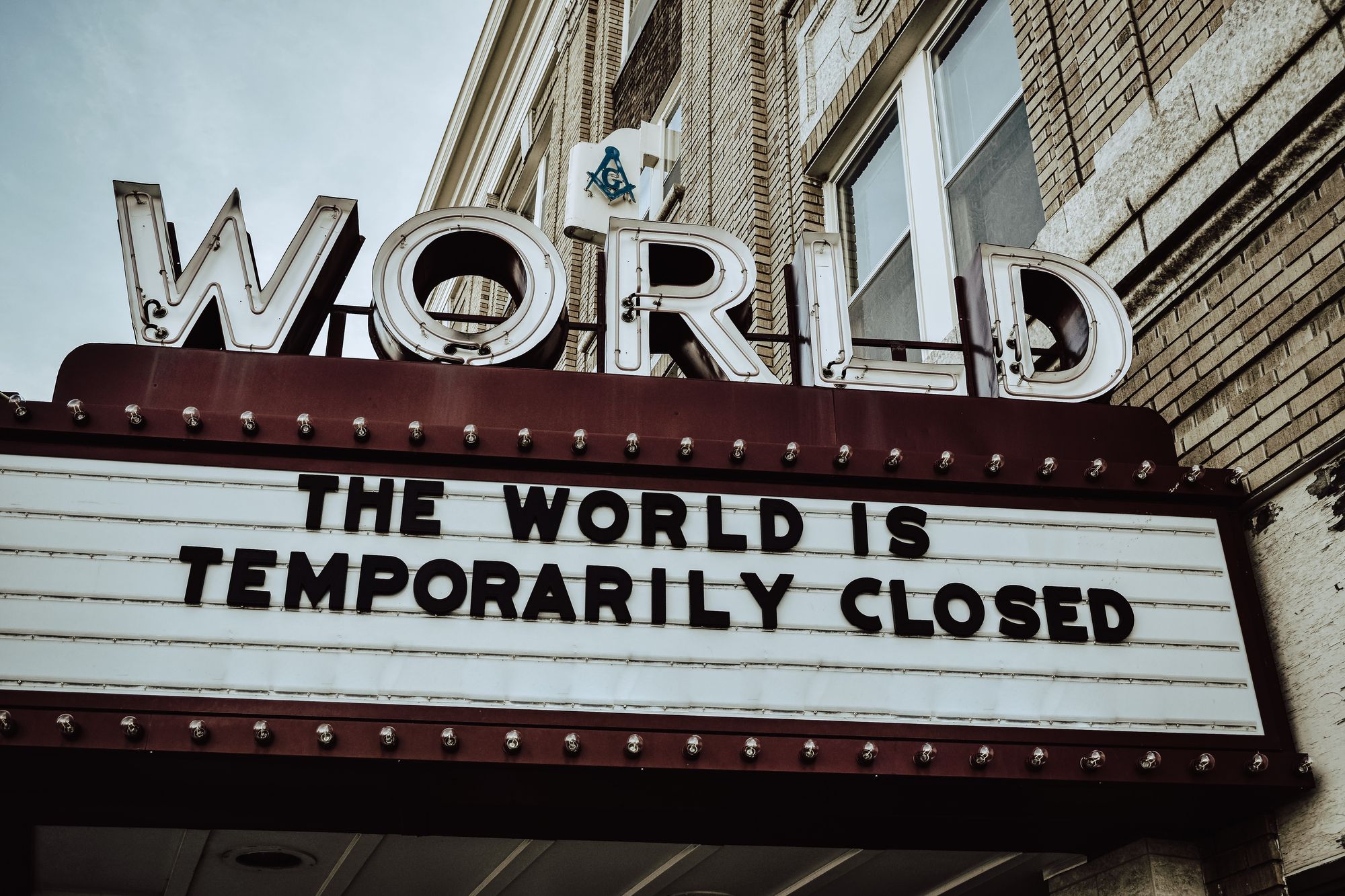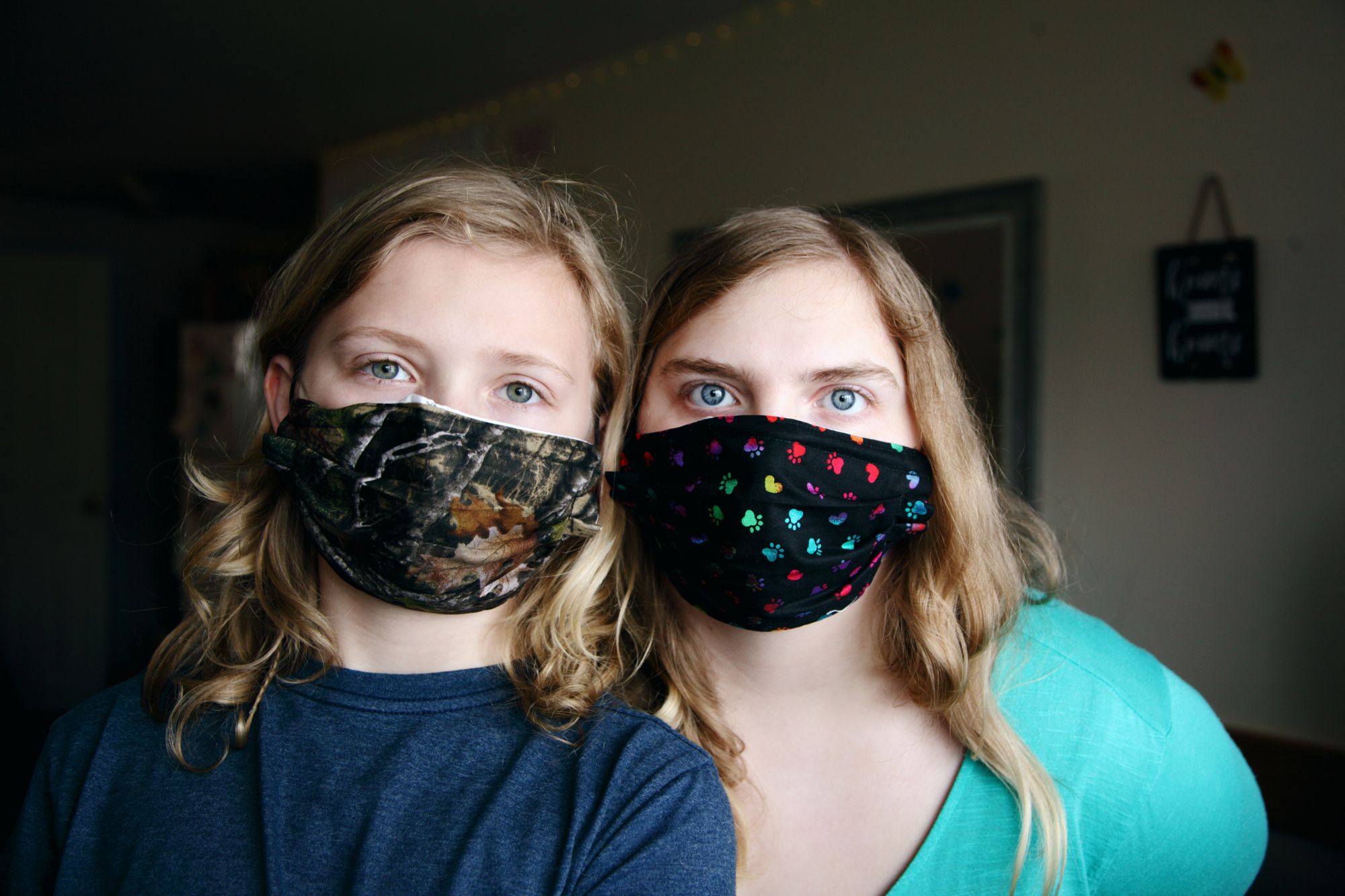Interview with Patient Advocate Anna Legassie
May, 2020 - More than two months into state-sanctioned quarantines to combat COVID-19. As the population continues to adjust to this new reality, millions are anxious for a return to normalcy. Most people are just patiently waiting; a vaccine or treatment will be found or we’ll simply take extra steps of caution when returning to pre-COVID routines. For citizens with underlying conditions, however, there’s no clear end in sight.
Clara Health spoke with Anna Legassie, head of strategy and development for a health policy and economics research group at an academic medical center in Boston. Anna lives with recurrent pericarditis, a rare heart condition, and also suffers from autoimmune arthritis for which she takes immunosuppressant medications. She shared her experience living with the danger of COVID-19
When did it sink in that COVID-19 was the "real deal"?
I can tell you the exact moment - Friday, March 6th I was leaving a meeting at the hospital, and when I walked out of the conference room the hospital’s incident command center (which is across the hall) opened and the entire executive team plus other department heads walked out. This room is typically reserved for major events like the marathon bombing or the labor strike we had a few years ago. The expression on everyone’s faces was grave - and I realized then, Oh my God, this is really bad. It's so much worse than I’ve allowed myself to believe because I think even then there was a part of me that already knew the implications for myself as a high-risk person.
How has COVID-19 impacted your life and your loved ones?
I'm completely isolated for both personal and practical reasons. Those closest to me are either essential employees or they live with someone who is, so I've made the decision to go with the strictest possible precautions because the risk of asymptomatic transmission is so high.
I had an E. coli infection from a contaminated burger two years ago, and by the time I sought treatment for it I needed blood transfusions because of the internal bleeding in my gut. My body constantly serves up these reminders about how susceptible I am to severe infections. Another person could have eaten that same burger, had a little upset stomach and then been fine whereas I was in the hospital for a week. The stakes are just so high for me that I feel like isolation is the safest course of action based on what we know (and don’t know) right now.
But even knowing all of that, there are times that it’s been pretty brutal. Ten weeks ago I slept over at my sister’s house to help out with my nieces. When I went home the next day we hugged, and that was the last time I’ve had any physical contact with another person. I’m incredibly lucky to have really supportive friends and loved ones and so I talk to multiple people multiple times a day and FaceTime and do Zoom sessions, but when we all hang up and my friends go back to the partners and/or kids, I don’t think any of them fully grasp what it means to do this alone.
You've talked about what COVID-19 means for you socially as a high-risk person. What are the heightened medical concerns?
Autoimmune arthritis patients like me are thought to have impaired immune systems (regardless of whether or not they’re taking any medications) and on top of that, many of the treatments that are available are immunosuppressing medications. The concern is that not only am I potentially more susceptible to contracting COVID-19 but that the systemic nature of my disease may also put me at a higher risk of serious complications - especially because of my pericarditis.
Has there been a singular moment that you've faced thus far that really stands out in your mind as being the most difficult?
I come from a big extended Greek family, and recently my favorite Greek auntie passed away from COVID-19. She was the kind of person who would meet mine and sister’s friends at a family party, friend them on Facebook, and stay in touch with them for life. She loved in such a big way and gave the absolute best hugs, and so not only is the loss itself devastating but to not be able to gather with our family and honor what an incredible person she was just deepens the pain we’re all feeling right now.
How has COVID-19 impacted your ability to access medications for your chronic illness?
I’ve been fortunate so far - while I’ve had some insurance hiccups along the way, I’ve been able to obtain all of my medications. Working at a hospital means that I was aware of preparation efforts as early as the beginning of March, so I had a bit of a head start on my own preparations compared to other patients. I was able to work with my care team to get a 60-day supply of all of my medications before quarantining - including hydroxychloroquine. Recently I was able to refill my hydroxychloroquine for a 90-day supply, but I know many patients are still having difficulty refilling theirs.
Having said that, supply chain disruptions for medications and medical supplies remain one of my top concerns knowing that we’re only at the very beginning of this pandemic.
How have you seen COVID-19 impact the ability of other patients access medications?
While the news has been focused on hydroxychloroquine shortages and the cancellation of elective procedures, I know cancer patients whose treatments have been canceled without a rescheduled date. These are people with treatable cancers - if they have access to treatment, they will likely survive. But if they don't have access to their chemotherapy, immunotherapy, etc. and their tumors have a chance to grow or spread or both, you have the possibility that a stage one treatable cancer advances to a point that it becomes a terminal diagnosis.
Before we can begin to reopen the economy, we must stabilize our healthcare systems to not only treat current and future surges of COVID-19 patients, but to restore critical care like cancer treatment.
What does the development of a COVID-19 vaccine mean to you?
I was supposed to run a race a few weeks ago, but it’s been rescheduled for September and I already know that I won’t be running it because even then it will be too soon for that kind of large gathering of people - whether you’re high-risk or not.
States across the country have started “reopening” and easing restrictions - even in places that have yet to see peak infection rates. Whether it’s at the state or federal level, all of these reopening plans include some sort of language around “all vulnerable individuals should continue to shelter in place,” and it’s clear that there’s a fundamental lack of understanding of just how many tens of millions of people, especially young people, are considered vulnerable to COVID-19.
It will take months of proactive monitoring and surveillance, testing, and tracing of infections before I’ll feel safe leaving my house in a meaningful way. And I’ll just have to continue living like that until we have a treatment and/or a vaccine. People who aren’t high-risk need to realize that just because they might be able to go to a restaurant by this summer, I won't be. Millions of other Americans can’t and won’t be there. It's hard to underscore that enough.
What would you say to someone who is considered healthy and low risk or a COVID-positive person about volunteering for a clinical trial?
This is going to sound hyperbolic, but this is a once in a lifetime chance to potentially save the lives of millions of people. And not just people here in the US. We're talking about millions of people across the globe.
You have the chance to be a hero, truly a hero. I keep thinking back to that picture of the first person in the world to receive a trial coronavirus vaccine - here’s this woman in her 40s, healthy mother of two, sitting there getting the shot in the arm. Every time I look at it, I just start crying. That woman said ‘I’m safe, I’m healthy. I can do this. Why wouldn't I do it?’
My greatest hope for people right now is that they will embrace that spirit too. That's really going to be the only way we get through this: ordinary people doing extraordinary things.


